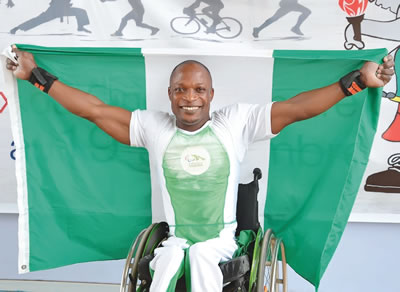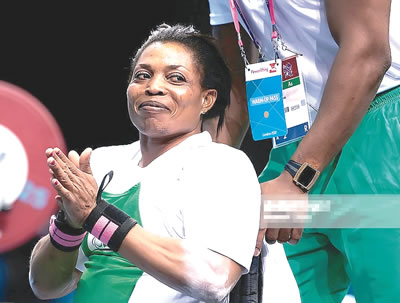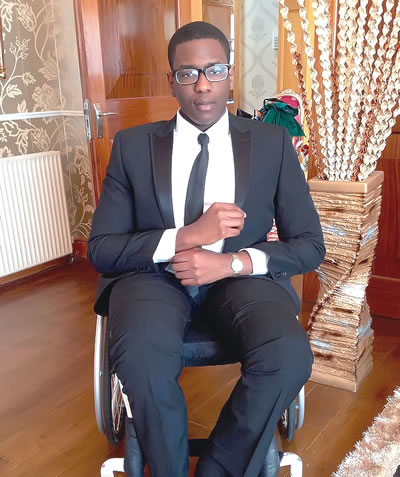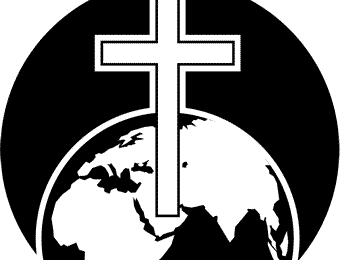
In this report, DOYIN ADEOYE write that though many people with disabilities are not living their dreams due to socioeconomic and political barriers, there are yet many others who have surmounted these obstacles to live the lives they have always hoped for.
IT is no news that the Nigerian Olympic team has been a disappointment to most Nigerians in nearly a decade of taking part in the global sport events. Their physically-challenged counterparts or People Living with Disabilities (PWDs)on the other hand have been winning medals at Paralympic events over the years. In the last three Olympic games (2008 – 2016), the able-bodied athletes won only five medals while the physically-challenged athletes won 34 medals for the country. Undoubtedly, the para-athletes have become heroes through sports.
However, many other physically-challenged persons like them are holed-up in care homes with run-down facilities and with little care of them. These homes only receive visitors a few times during the year – that is Christmas, New Year season, Easter period, during birthdays of individuals and on special occasions. At other times, no one knows they exist.
One of the premier homes for people with disabilities in Nigeria is Cheshire Home in Ibadan, but with branches in other parts of the country. Before the meltdown, the home lived on donations from prominent Nigerians, but in the last three years, it has reduced considerably, so says the Assistant Matron of the home, Mrs B.O Yinusa.
Initially the donations were rolling in and on time too. According to her: ”1997 was the last time we bought rice because we got it plenty from donors until it stopped coming. During the good times, the students ate rice six days in a week. Now that the price has gone through the roof, hardly do they eat rice thrice a week. We had to reduce rice consumption because the supply has drastically reduced.”
With 18 staffers to pay and with dwindling donations, which used to be at least N500,000 monthly, but now reduced to between N250,000 and N350,000, maintaining the Home and buying foodstuffs have become a problem. “We admit that we can’t do it alone, so we appeal to Nigerians to continue to help us to be mothers to these children,” Mrs Yinusa said.
In spite of this scenario, some physically-challenged people have risen above their situations and have done well for themselves in various areas of endeavour.
Speaking with Sunday Tribune, former Special Adviser to Oyo State Governor on Matters affecting People With Disabilities, Mr Ayodele Adekanmbi, who is also a lawyer, noted that most PWDs in Nigerian are not feeling the impact of government in their lives, despite the fact that Nigeria is part of the global agreements that are designed to affect positively the lives of PWDs. He noted further that it is pathetic that the adoption of 17 Sustainable Development Goals (SDGs) by the United Nations, and the role of these goals, in building a more inclusive and equitable world for PWDs, is a mirage in the Nigerian context.
“The Disability Bill, which is supposed to protect the rights of children, women and PWDs generally, has gone through three past presidents, right from President Olusegun Obasanjo’s era and was never passed to law. It went through President (Goodluck) Jonathan twice, both when he was acting president and president, and he didn’t sign it either, saying that the financial implication was too much for the country to bear. I was a delegate during the last National Conference and we passed over 118 resolutions that border on PWDs and their families, yet nothing has been done on that so far,” he said.
Adekanmbi, a blind legal practitioner who is also the Executive Director, Disability Empowerment Solution, also said that one of the cardinal objectives of the SDGs is to give access to all. “But unfortunately, having access in all facets for PWDs seems unattainable in Nigeria.
“Of all the banks in Nigeria, only one has ramps at its branches where those on wheelchairs could use, unlike many other banks where PWDs do not have access to the banking hall. In terms of education, many universities are not conducive for PWDs. Imagine someone on a wheelchair having lectures on the third floor of a building where there are no elevators. Many have to rely on their colleagues to carry them up the stairs to lecture halls.
“Many local airports do not have aid for disabled persons and most times, have to carry a physically challenged person into the aircraft. The walkways on the roads are inaccessible for us. Everything is not just right.
“We have many married women living with disabilities, but how many of them can access our markets? Talking about access to health care for instance, many hospitals do not have sign language interpreters to relay what the doctors or nurses are saying to deaf patients. Imagine if a deaf pregnant woman visits a clinic for her antenatal, how is she supposed to communicate?
“This issue also persists at the judiciary level. I am a trained lawyer, but I cannot practise in this country because our law reports are not in Braille. And of course, the level of involvement of PWDs in government is not encouraging. The Nigerian government is far behind when it comes to ensuring the rights of PWDs. Our neighbouring country, Ghana. has all these things put in place,” he lamented.
Although the Disability Bill again recently went through both houses of the National Assembly, PWDs are waiting anxiously for the day it will be passed into law. While marking this year’s celebration on December 3, Executive Director, Centre for Citizens with Disabilities, Mr David O. Anyaele, said that: “We are worried that just a few states in Nigeria: Ondo, Lagos, Ekiti, Plateau and Bauchi, have passed the disability law, which protects citizens with disabilities from exclusion and discrimination on the grounds of disabilities.
He confirmed that though Nigeria had signed the United Nations Convention on the Rights of Persons with Disabilities, “the SDGs will not be achieved if state and non-state actors continue to discriminate, isolate and marginalise over 25 million Nigerians with disabilities in planning and implementation of the SDGs in Nigeria.”
Son of former governor of Ogun State, Chief Gbenga Daniel, and the founder, Debola Daniel Foundation, Adebola Daniel, who is on a wheelchair, also noted that compared to many other countries, Nigeria lacks the key factors necessary for the welfare of PWDs.
“Nigeria lacks a couple of key things. First is the accessibility of all government buildings and places of leisure. We also lack a truly accessible transportation system. And most importantly, the mindset towards disability is still very flawed as many people look at disability as a charity issue and not a social issue,” he told Sunday Tribune.
In the same vein, Paralympics world record holder, in weightlifting, Yakubu Adesokan, said there is room for improvement by the government on rights of PWDs.
“The standard of living of PWDs has not been encouraging. For instance, it will shock you to know that while PWDs in many other countries use public transportations free of charge, the reverse is the case here. In fact, transportation is even more expensive for PWDs in Nigeria. To avoid waiting for hours at bus stops, because many commercial drivers refuse to carry them, many are forced to charter cabs. Where some spend N200 on transportation. a disabled person will spend at least N1,000, which is not supposed to be,” Adesokan said.
For Seun Salami, an entrepreneur living with disability, the major clamour from many PWDs like him is having their rights respected because, as long as the society excludes them, reaching their full potential and opportunities they deserve will be an uphill task.
“How many banks have you walked into and see a disabled person working there? How many disabled persons have offices in politics? How many investors can invest in a disabled entrepreneur? How many disabled persons are heading top parastatal agencies or companies in Nigeria? How many disabled persons do you see on TV as newscasters? If you answer these questions genuinely, then you will realise that we are greatly marginalised.
“It is not that we are not qualified, it is just because no one will consider you for such positions. That is why many PWDs resolve to skill acquisitions as no corporate organisation is ready to employ us. I am a graduate for example, but here I am, running my own small business,” Salami said.
Oyo State Chairman, Association of People of People Living With Disabilities (APLWD), Afeez Olalekan Yusuff, speaking along this view, said it is pathetic that many believe that disability is contagious, especially in this society.
“No one wants to marry a disabled person because they feel they will be a burden to them, which is not true. Once many disabled persons are used to an environment, they can take care of themselves,” he said.
Yusuff blamed parents for the preponderance of many PWDs who often resort to street begging for their livelihood.
“This has nothing to do with the government, but rather, parents and guardians. In the 80s, there were only a few disability schools. I didn’t attend a special school, but now, there are many of such schools around. Some are even free. So, it is up to the parents to look beyond the disability and give the child the right to education,” he said.
According to Paralympics world record holder in the female weightlifting category, Esther Oyema, these misconceptions about physically-challenged people serve as major setbacks for them.
“The major thing that we clamour for is to be treated just like every other person in every sense of life. Many of us are well-educated, but no matter how well you do at a job interview, they won’t give you the job because of the disability. People need to understand that there is more to a physically-challenged person than the disability,” she said.
Buttressing this, Adesokan said the fight for dignity for PWDs lay with every individual.“It is sad that some have the impression that they can only survive on begging. When I see people like this, I often advice them because as a physically-challenged person, one can be anything and with so much focus and determination, a lot can be achieved,” he said.
Echoing Adesokan, Oyema said: “PWDs should never let their disabilities weigh them down. “I looked beyond my disability and strived to be the best in whatever I did; I am into sports and today, I am a world record holder. So, I always tell most of my physically-challenged friends to keep doing their best. Even if you are not educated, learn a skill and stop waiting for people to come to your aid. This lies on us and we need to do this together,” she said.
On the appointment of PWDs into government, Adekanmbi would rather the right people are appointed. “Even though President Muhammadu Buhari appointed people, the question is, are they part of us? They should put round pegs in round holes, not just anyone from their end. In fact, we do not need a Special Assistant. What we need is to be given our own ministry or commission. Lagos State government, for instance, has the Lagos State Office for Disability Affair (LASODA), which is functioning really well.
“PWDs in Lagos don’t have to queue in banks or bus stops. Once you have LASODA’s identity card, the Lagos State transportation is free for PWDs. Plateau State also passed a law on disability, but it is not as functioning as that of Lagos. If Lagos can do that, others can emulate the state,” he said.
For Debola Daniel, appointment of more PWDs is one of the best steps forward. “I believe the government can actually start by considering appointing more disabled people into the cabinet. In our push to get women more recognised, we fought hard to make sure that no cabinet was complete without a woman to at least bring a different perspective to things. This sort of perspective can be provided by a physically-challenged person on issues affecting PWDs,” he said.
WATCH TOP VIDEOS FROM NIGERIAN TRIBUNE TV
- Let’s Talk About SELF-AWARENESS
- Is Your Confidence Mistaken for Pride? Let’s talk about it
- Is Etiquette About Perfection…Or Just Not Being Rude?
- Top Psychologist Reveal 3 Signs You’re Struggling With Imposter Syndrome
- Do You Pick Up Work-Related Calls at Midnight or Never? Let’s Talk About Boundaries








